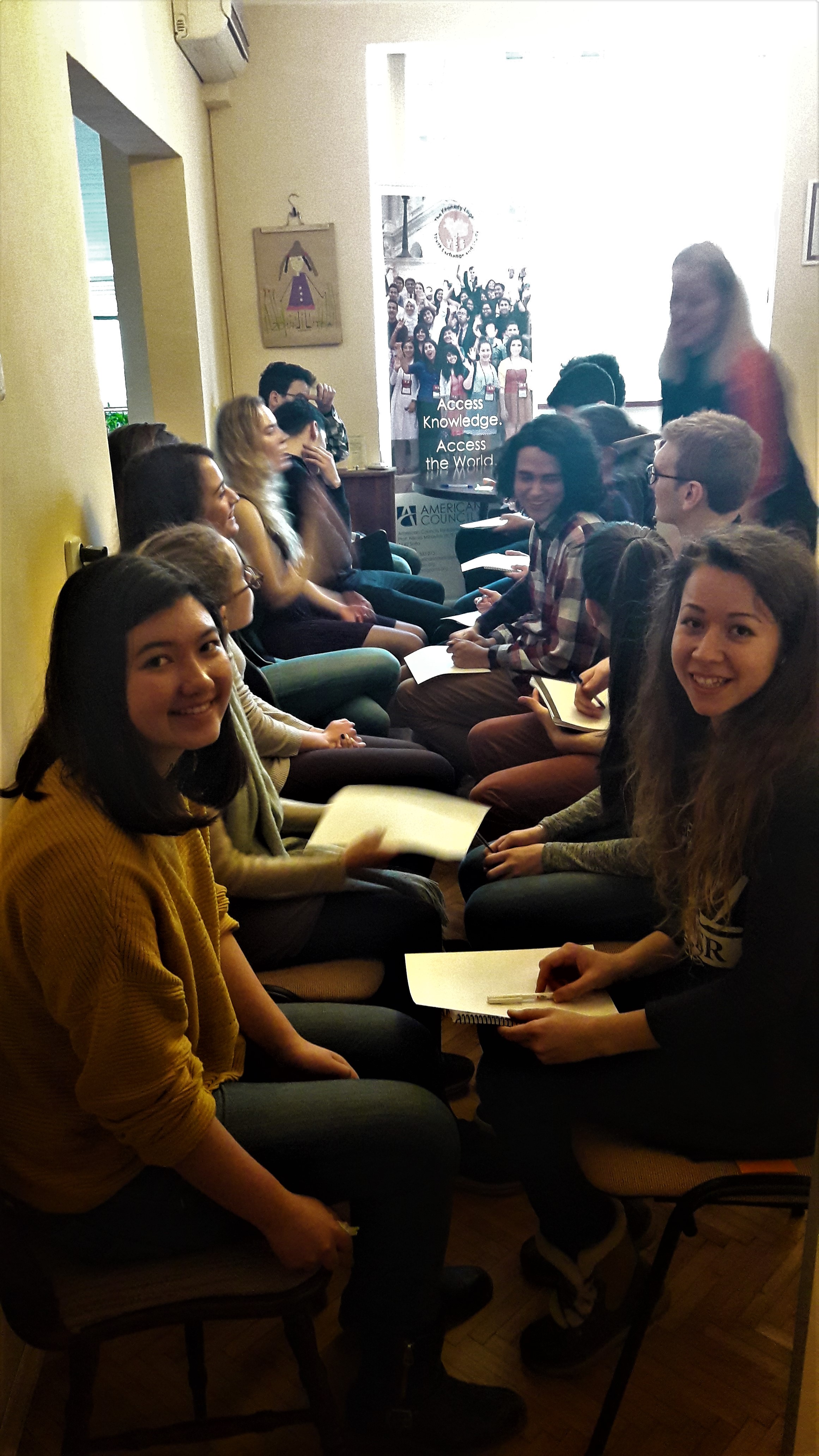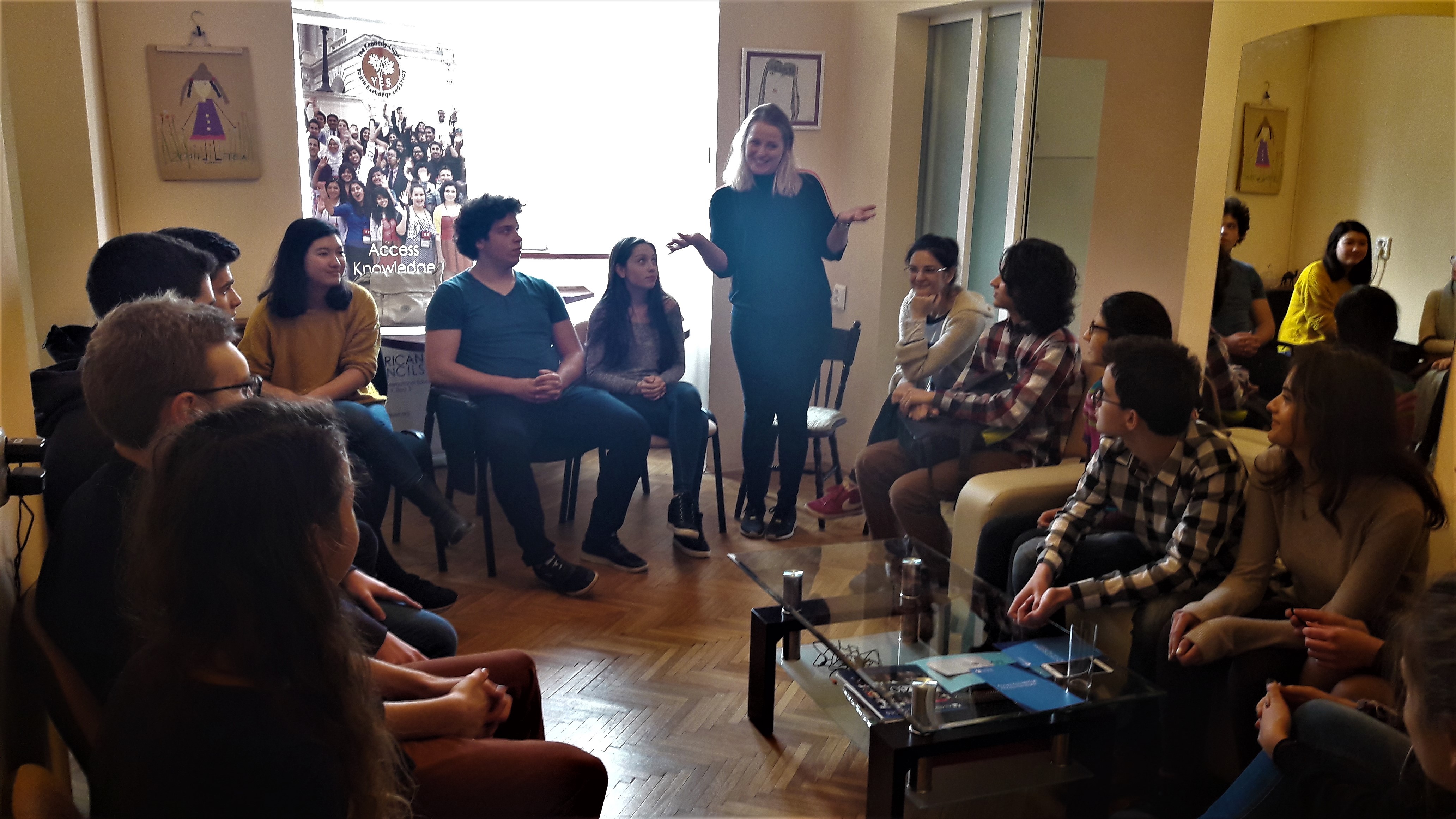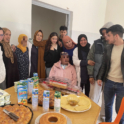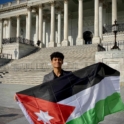Maryame has taken the lessons learned from her exchange year to make a difference in her community.
STORIES
Exploring the "Colored Glasses" of Culture

By Shebnem Niazi (YES 2013-2014, Bulgaria, hosted by World Link in Kalona, IA)
On February 25, 2017, I joined YES Abroad and other exchange students currently studying in Bulgaria, as well as their host siblings and best friends, at the American Councils office in Sofia to explore and learn about values, cultural differences, stereotypes, non-verbal and verbal communication, and identity. The workshop, called Colored Glasses, was organized by American Councils and Youth for Understanding (YFU) Bulgaria.
The name Colored Glasses refers to the well-known analogy of the sunglasses which represent the cultural filters through which we observe and interpret reality. The objectives of the workshop were to introduce young people to the concepts of intercultural learning and to raise awareness about problems in society caused by intolerance. The aim of the initiative was achieved by using interactive non-formal education methods.
Intercultural learning has always played an essential role in countering stereotypical and prejudicial views. The intercultural element was clear from the beginning, when the workshop started with a fun name game. Out of 22 participants, there were students who have either lived in, come from, or been exchange students in Denmark, Argentina, Germany, England, Bulgaria, and the Unites States of America.
Together we brainstormed different stereotypes that we had about each other or of members of different nations, cultures, and communities. It was not difficult to come up with myriads of examples. We realized that when we make inferences about a new person or about some social event, we usually use our existing knowledge to reduce the uncertainty in the situation. The less we know about the object, the more we use stereotypical generalizations. We discussed how such generalizations might be harmful and might lead to errors in decision making that carry the potential for negative consequences, especially when it comes to legal, employment-based, and interactive decision-making.
Through interactive group games, we were introduced to the concept of identity. We came to the realization that there is a classic confusion between identity, culture, belonging, and tradition, in which individual traits are generalized, or linked, to culture when they are actually much more difficult to define. By playing a “silent” card game, we realized that, in order to avoid such confusion, we have to be able to communicate with one another effectively. Effective communication is not only verbal. The non-verbal elements - our gestures, body position, tone of speaking - play a great role when we are approaching someone.
The workshop provided a space to reflect, to work on individual attitudes, and to bring about social change. The initiative reminded us that intercultural learning does not happen at the end of one activity or a week’s training. It is a process of change, which carries on once participants have left the centers and gone back to their daily lives. There, they continue reflecting on the courses and on their experiences while interacting with others, and this is how the lessons learned are being (un)consciously implemented.






